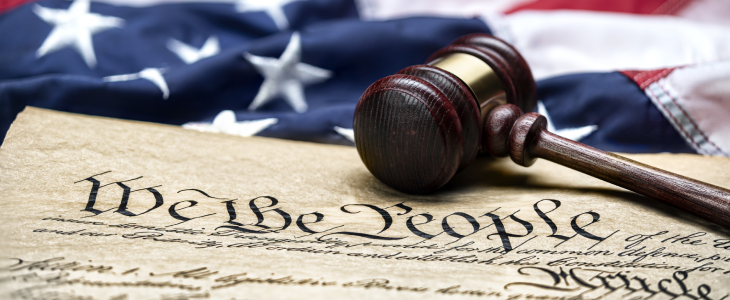State and federal appellate courts have jurisdiction over a number of matters that involve individuals’ civil rights. These cases affect some of the most important protections and liberties that Americans enjoy and have fought to secure for generations. They also bring into focus the sometimes contentious relationship between people and the government. If you believe your civil rights have been violated by the government or one of its agents, you may have already taken action by filing a lawsuit.
But a lawsuit and trial do not guarantee that you will win. Judges and juries can commit errors that effectively deprive an individual of their civil rights. The Keleher Appellate Law Group can help you appeal a lower court’s verdict so you can seek the justice you deserve.
The Most Commonly Appealed Civil Rights Violations
Our Constitution protects many of the most fundamental rights that we, as Americans, have. When governments and its agents violate these rights, individuals can take their grievances to court by filing state and federal lawsuits. If the trial court rules against them, these individuals may have the right to file an appeal.
These are a few of the civil rights issues that litigants most commonly appeal:
- Unlawful detention: The police cannot detain people at will. Officers must have a legitimate reason to do so, known as reasonable suspicion. This is more than a hunch and requires facts and evidence that can be articulated to justify the limits and inconveniences that accompany police detention.
- Unlaw arrest: Because arrests place far more serious and consequential restrictions on a person’s liberty, law enforcement must have an even stronger reason to support arresting someone. This is known as probable cause. Essentially, probable cause exists where a reasonable person, viewing the evidence, believes the suspect committed a crime.
- Police misconduct: Civil rights laws and court decisions over the years have made clear that there are limits to how police may conduct themselves in carrying out their duties. Unlawful search and seizure, false arrest, and excessive force (police brutality) are some examples of police activity that lead to civil rights appeals.
- Discrimination: The Equal Protection Clause of the Constitution, as well as numerous federal and state laws, prohibit discrimination on the basis of race, sex, religion, and other categories. In many cases, state laws and constitutions provide greater protections than those existing at the federal level. Claims of government discrimination are often appealed in the courts.
- Violations of public accommodations laws: State and federal governments have enacted laws since the 1950s and 1960s to protect the right of individuals to be treated equally by businesses that provide public accommodations. These include establishments such as restaurants, hotels, banks, and many others.
- Prosecutorial misconduct: Criminal prosecutors are subject to various rules that prohibit them from engaging in behavior that could infringe upon a suspect’s civil rights. A few examples include withholding evidence, discriminating on the basis of race or other protected characteristics when selecting jury members, and making inappropriate remarks during the trial.
Do I Have a Case For an Appeal?
Losing your civil rights trial does not give you an automatic right to appeal. Many individuals falsely believe that an appeal is a second chance to try the case. In reality, to appeal a civil rights case, an individual must have evidence that certain, specific errors occurred that denied that person a fair trial or fair treatment. For instance, if any of these events happened, you may be able to appeal the trial judge’s decision or verdict:
- The trial was conducted unfairly
- The judge applied the wrong law
- The judge applied the correct law but did so incorrectly
- Evidence was wrongfully admitted or excluded
- The judge or jury did something that violated your state or federal constitutional rights
How Our Firm Can Help
All of these and other reasons for appeals depend on the facts of each individual case. If you believe your civil rights were violated but the trial court unjustly failed to rule in your favor, we can examine the circumstances of the decision and explain your legal options. If your case qualifies for an appeal, we can handle each step of it and advocate for the justice that you were denied. Get started today by calling The Keleher Appellate Law Group.
The Keleher Appellate Group, LLC, serves clients in Chicago, Denver, St. Louis, and the surrounding areas in Illinois, Indianapolis, Indiana, Missouri, Wisconsin, and Colorado. We also provide our services nationwide and internationally.

